Faculty and Students Join Forces to Support Peace Efforts in Colombia
Tuesday, May 21, 2024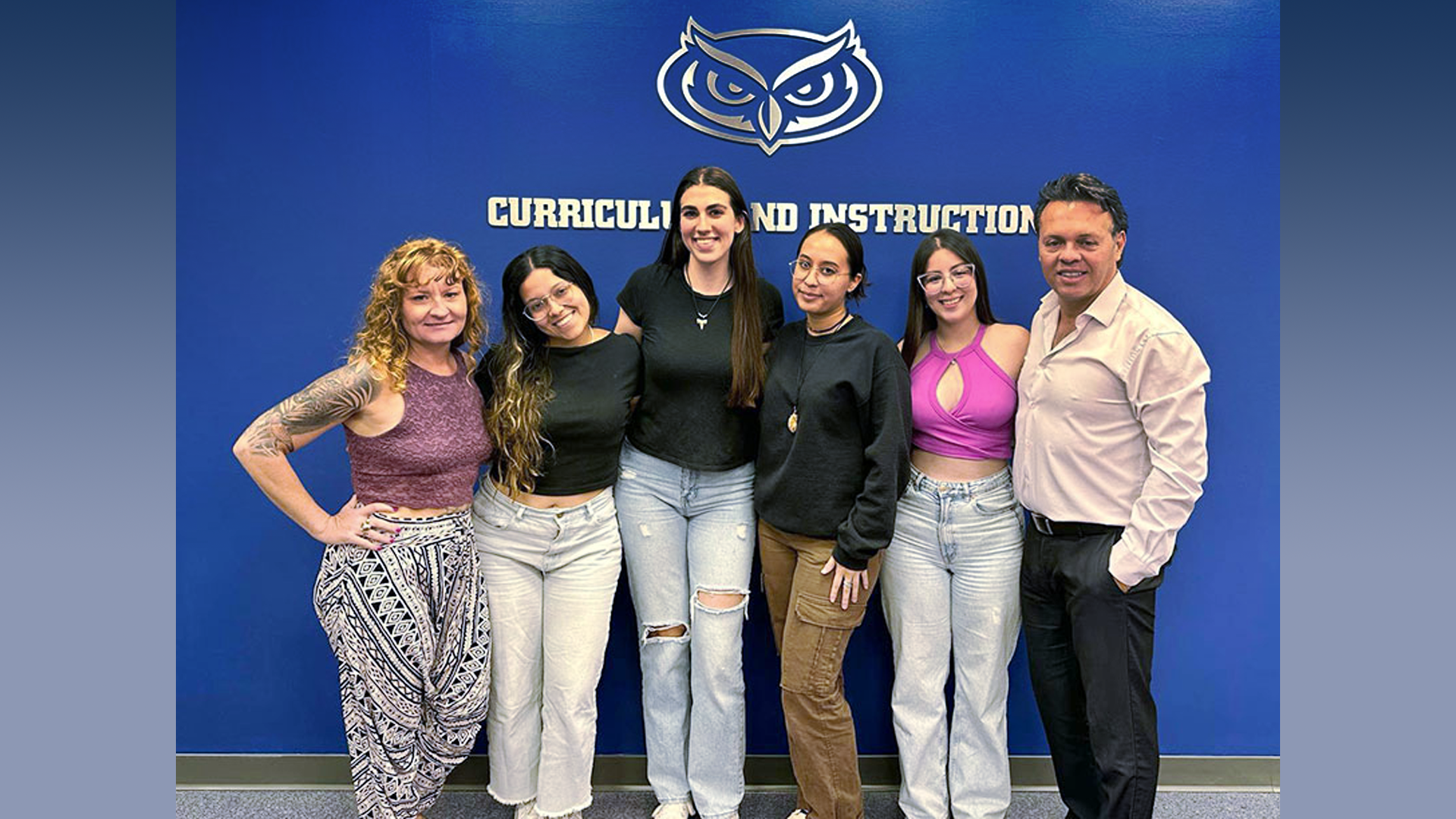
From left to Right: Angela D. Nichols, Ph.D., Lina Sofía Vásquez, Brooke Zimmerman, Isa Marin, Salomé Díaz Gómez and Andrés Ramírez, Ph.D.

In 2022 and as part of the historic
peace agreement
in Colombia,
La Comision de la Verdad
(Truth commission) released a series of extensive reports at the end of their three-year investigation into the human rights violations committed during the 52+ years of civil war in Colombia. A few summary documents from the commission have been translated into English.
The Center for Peace, Justice and Human Rights
(PJHR) in association with the
Hispanic-serving Institution research interest group
at Florida Atlantic leads an effort to translate the extensive reports into English. One undergraduate student in Colombia, two faculty members and four undergraduate students at Florida Atlantic are part of this project.
By engaging in this project, this initiative supports the commission’s objective to promote the dignity and recognition of the victims as the translation into English will expand the potential readership of these monumental reports.
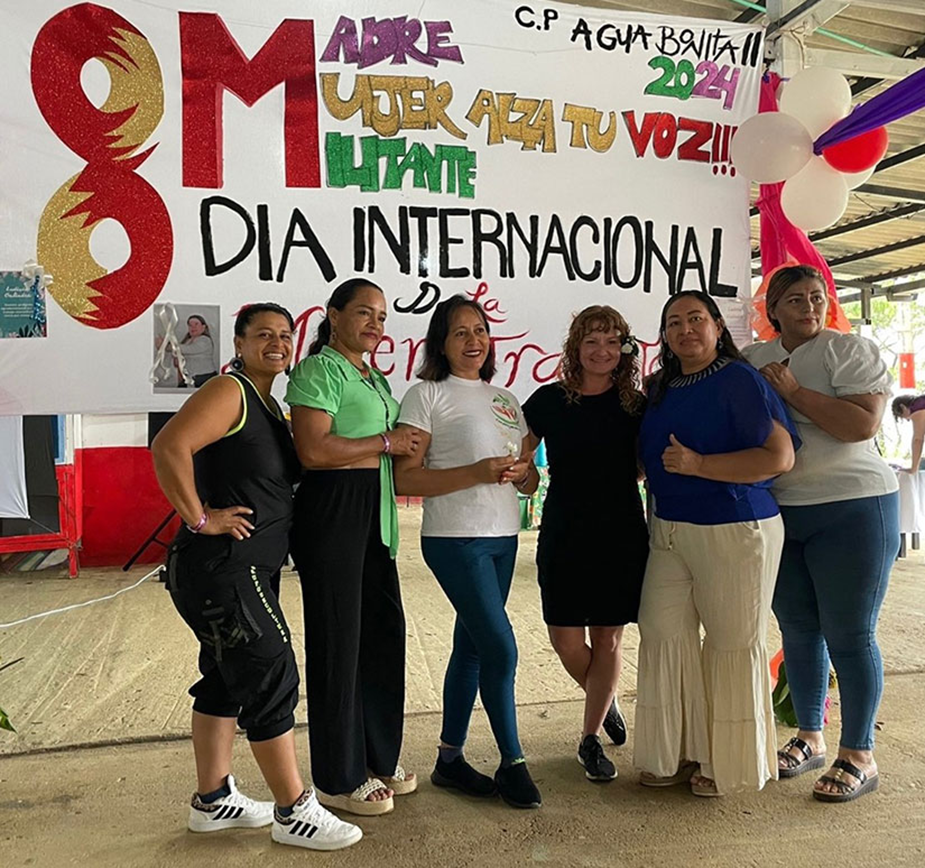
The project is led by Angela D. Nichols, Ph.D., (dress), interim director of the Center for Peace, Justice and Human Rights, and associate professor in the Department of Political Science, Dorothy F. Schmidt College of Arts and Letters. For the last five years, Nichols’ research in human rights and conflict focused on the Colombian context. She is currently working on a book that examines the experiences, contributions and consequences of women in the FARC-EP, Revolutionary Armed Forces of Colombia–People's Army, which made up at least 40% of the guerrilla forces at the time of demobilization. Her book “Impact, Legitimacy, and Limitations of Truth Commissions” examines how truth commissions contribute to peace and human rights following periods of conflict or mass abuse. Nichols has published articles in the Journal of Conflict Resolution, International Studies Perspectives, Conflict, Security, & Development, Dynamics of Asymmetric Conflict, Civil Wars, and TRAMES: A Journal of the Humanities & Social Sciences. Readers can also find her research in The Conversation and Political Violence at a Glance.
Nichols research has advanced through connections with the Florida Atlantic Hispanic-serving Institution research interest group, which is co-directed by Andrés Ramírez, Ph.D., associate professor in the Department of Curriculum and Instruction, College of Education.
 Ramírez’ affiliation with this project is both professional and personal. Professionally, his research interests align with upholding the rights of most disadvantaged groups, particularly as they relate to the linguistic rights of language minority speakers. He has published multiple book chapters and articles, and has presented his research more than a dozen countries around the world. Personally, he and his family were recognized as official victims of the Colombian conflict as his 15-year-old brother, David Marcelo Ramírez, was assassinated on Feb. 12, 1992. As a retaliatory action for David’s denial to be part of the conflict and cause harm to anyone, recruiters from illegal groups that had infiltrated his school as staff members targeted him and ordered to finish his short life. As a way to honor his sacrifice and life ethic, and by petition of Andrés Ramírez, the research group decided to start the project with the translation of the truth commission’s report on children titled “It is not a Lesser Evil: Girls, Boys, and Adolescents in the Armed Conflict (No es un mal menor: Niñas, niños, y adolescents en el conflicto armado).” A final draft is slated for summer 2024.
Ramírez’ affiliation with this project is both professional and personal. Professionally, his research interests align with upholding the rights of most disadvantaged groups, particularly as they relate to the linguistic rights of language minority speakers. He has published multiple book chapters and articles, and has presented his research more than a dozen countries around the world. Personally, he and his family were recognized as official victims of the Colombian conflict as his 15-year-old brother, David Marcelo Ramírez, was assassinated on Feb. 12, 1992. As a retaliatory action for David’s denial to be part of the conflict and cause harm to anyone, recruiters from illegal groups that had infiltrated his school as staff members targeted him and ordered to finish his short life. As a way to honor his sacrifice and life ethic, and by petition of Andrés Ramírez, the research group decided to start the project with the translation of the truth commission’s report on children titled “It is not a Lesser Evil: Girls, Boys, and Adolescents in the Armed Conflict (No es un mal menor: Niñas, niños, y adolescents en el conflicto armado).” A final draft is slated for summer 2024.
Student Leaders

- Aura Cuasquer Ordoñez

- Laura Sofía Gallo

- Gabriela Quintero

- Cleo Miyake
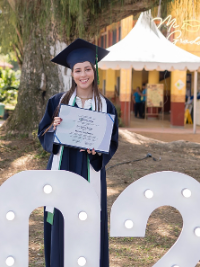
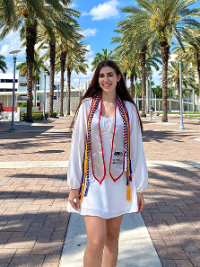
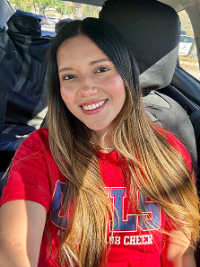
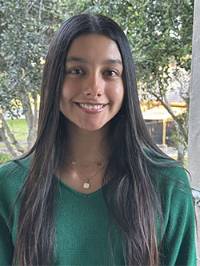
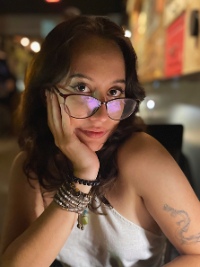

Did you know?
- An estimated 1.4 million Hispanics of Colombian origin lived in the United States in 2021, according to a Pew Research Center analysis of the U.S. Census Bureau’s American Community Survey.
- Colombians in this statistical profile are people who self-identified as Hispanics of Colombian origin; this includes immigrants from Colombia and those who trace their family ancestry to Colombia.
- Colombians are the seventh-largest population of Hispanic origin living in the United States, accounting for 2% of the U.S. Hispanic population in 2021.
- From 2000 to 2021, the Colombian-origin population increased 183%, growing from 500,000 to 1.4 million. At the same time, the Colombian foreign-born population living in the U.S. grew by 113%, from 380,000 in 2000 to 820,000 in 2021.
Source: https://www.pewresearch.org/hispanic/fact-sheet/us-hispanics-facts-on-colombian-origin-latinos/
The text below is a translation sample of the first report the Florida Atlantic group worked on during the Spring of 2024. The original report in Spanish is called No es un mal menor: Niñas, niños, y adolescents en el conflicto armado (It’s not a Lesser Evil: Girls, Boys, and Adolescents in the Armed Conflict). The translation sample below corresponds to the first three paragraphs of the volume focused on children and adolescent victims in the conflict. The sample provides but a brief glimpse of the richness and extent of these reports. The final translation for this entire volume will be available during summer of 2024.
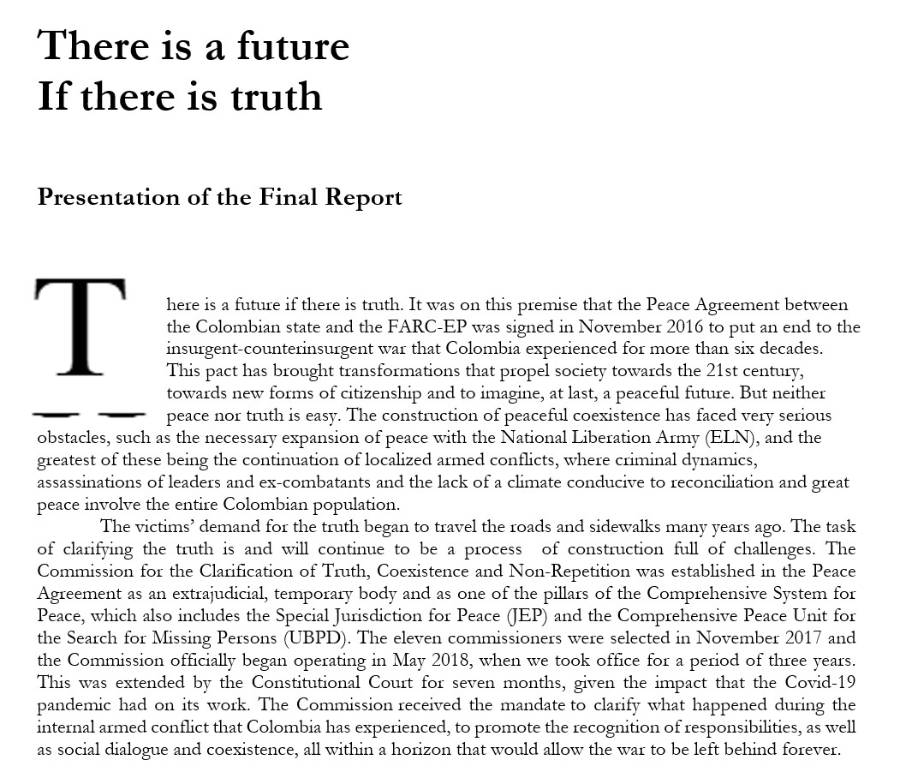
Systematic Review Project: Examining Undergraduate Students Academic Performance at Hispanic-Serving Institutions
Researchers Involved
María D. Vásquez-Colina, Ph.D.
Sofia Blanco and Abigail Sinu, undergraduate students
Laurie Rebar and Ken Frankel, Florida Atlantic library
Description
The project involves a systematic review of empirical sources examining academic performance variables as well as students’ characteristics for undergraduate students in Hispanic Serving Institutions in the United States. Data from this review come from empirical sources that were reviewed in bibliographic databases under a systematic review methodology.
Outcomes
AERA Youth Research Proposal
OURI symposium poster